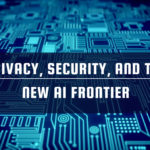In today’s digital era, information is a valuable asset for businesses, propelling innovation, decision-making, and seeking competitive advantage. Effective knowledge management is critical for gathering, organising, and sharing useful information with employees, consumers, and stakeholders. However, traditional knowledge management systems frequently fail to keep up with the growing volume and complexity of data, resulting in information overload and inefficiency. Enter generative AI, a game-changing technology that promises to transform how organisations approach knowledge management.
Generative AI vs Traditional Knowledge Management Systems
GenAI refers to artificial intelligence models that can generate new material, such as text, graphics, code, or audio, using patterns and correlations learnt from large datasets. Unlike typical knowledge management systems, which are primarily concerned with organising and retrieving existing information, generative AI is intended to produce wholly new material from start.
Deep learning methods, notably transformer models such as GPT (Generative Pre-trained Transformer) and DALL-E (a combination of “Wall-E” and “Dali”), are central to generative AI. These models are trained on massive volumes of data, allowing them to recognise and describe complex patterns and connections within it. When given a cue or input, the model may produce human-like outputs that coherently mix and recombine previously learned knowledge in new ways.
Generative AI differs from typical knowledge management systems in its aim and technique. Knowledge management systems essentially organise, store, and disseminate existing knowledge to aid decision-making and issue resolution. In contrast, generative AI models are trained on massive datasets to generate wholly new material, such as text, photos, and videos, based on previously learnt patterns and correlations.
The basic distinction in capabilities distinguishes generative AI. While knowledge management software improves information sharing and decision-making in customer service and staff training, generative AI enables new applications such as virtual assistants, chatbots, and realistic simulations.
Unique Capabilities of Generative AI in Knowledge Management
Generative AI has distinct features that distinguish it apart from traditional knowledge management systems, opening up new opportunities for organisations to develop, organise, and share information more efficiently and effectively.
- Knowledge Generation and Enrichment: Traditional knowledge management systems are largely concerned with organising and retrieving existing knowledge. In contrast, generative AI may generate wholly new knowledge assets from existing data and prompts, such as reports, articles, training materials, or product descriptions. This capacity dramatically decreases the time and effort necessary to create high-quality material, allowing organisations to quickly broaden their knowledge bases.
- Personalised and Contextualised Knowledge Delivery: Generative AI models can analyse user queries and provide personalised, contextualised replies. This capacity improves the user experience by delivering specialised knowledge and insights that are directly relevant to the user’s requirements, rather than generic or irrelevant data.
- Multilingual Knowledge Accessibility: Global organisations often require knowledge to be accessible in multiple languages. Multilingual datasets may be used to train generative AI models, which can then smoothly translate and produce content in many languages. This capacity removes linguistic barriers, making knowledge more accessible and understandable to a wide range of consumers.
- User Adoption and Change Management: Integrating generative AI into knowledge management processes may need cultural shifts and changes in employee knowledge consumption habits. Providing training, clear communication, and proving the advantages of generative AI may all assist to increase user adoption and acceptance.
- Iterative training and feedback loops enable continual improvement for generative AI models. Organisations should set up systems to gather user input, track model performance, and improve models based on real-world usage patterns and developing data.
The Future of Knowledge Management with Generative AI
As generative AI technology evolves and matures, the influence on knowledge management will become more significant. We might expect increasingly powerful models that can interpret and generate multimodal material, mixing text, pictures, audio, and video flawlessly. Furthermore, combining generative AI with other developing technologies, such as augmented reality and virtual reality, might result in immersive and interactive learning experiences.
Furthermore, developing responsible and ethical AI practices will be critical for assuring the integrity and dependability of generative AI-powered knowledge management systems. Addressing concerns of bias, privacy, and transparency will be critical to the general use and acceptance of these technologies.
Contact us at open-innovator@quotients.com to schedule a consultation and explore the transformative potential of this innovative technology






